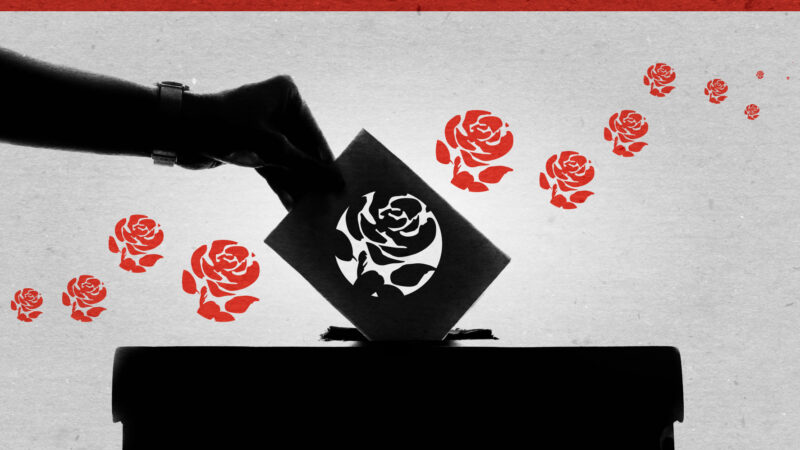
Four members backed by trade unions have sent the Labour Party a legal letter challenging the proposal to change the voting system for ruling body elections without first putting it to conference.
A meeting of Labour’s national executive committee (NEC) today will see members of the ruling body consider switching from first-past-the-post (FPTP) to a single transferable vote (STV) system for its own elections.
Labour leader Keir Starmer is understood to be in favour of the move, as well as the party’s soft left organisation Open Labour and campaign group Fair Internal Labour Elections (FILE).
The new voting system for internal NEC elections is also championed by Labour MPs such as Open Labour’s Alex Sobel and backbencher Clive Lewis, who wrote in support of the switch on LabourList.
But four party members – Sophia Bolton, James Smith, Giovanna Dunmall and Ollie Hill – have instructed Bindmans LLP to send Evans, who started in the job on Monday, a five-page legal letter.
Seen by LabourList, the letter argues that such a “fundamental shift” in how NEC elections work “should only be introduced with the assent of the membership at party conference” with debate and a vote.
Labour conference this year, set to take place in September, has been cancelled due to the coronavirus pandemic. Whether it will take place instead in 2021 has not yet been established.
One of the signatories, Sophia Bolton, said: “It is utterly wrong to propose sneaking through sweeping changes to our party’s constitution while our backs are turned. Party rules are clear that they can only be changed at annual conference.”
The initiative is supported by Labour-affiliated trade unions on the party’s left, Unite, ASLEF, BFAWU and FBU, who all have seats on the NEC and are expected to make their opposition clear at the meeting.
Howard Beckett confirmed in Tribune on Monday that Unite is “supporting a letter by four grassroots members of the Labour Party to prevent parts of its bureaucracy from making major changes to internal election rules outside of our national conference”.
The comment piece contends that the decision should not go through as there has been “zero consultation” with members on how their own NEC representatives should be chosen.
Opponents of the STV change say it amounts to a “constitutional amendment” and that according to the party rulebook these proposals should be approved by conference as the “supreme authority”.
Advocates of the NEC directly adopting STV say it does not constitute a rule change, however, as the rulebook already states that NEC elections should be “conducted to guidelines laid down by the NEC”.
The rulebook states that local party reps must be chosen by “all eligible individual members of the party by means of a national one-member-one-vote postal ballot” but does not specify a voting system.
The legal letter cites Evangelou v McNicol to make the argument that while setting freeze dates fall within the NEC’s discretion, “this case goes well beyond procedure” and “no discretion is afforded” to method of voting.
The four party members supported by trade unions have said that they will consider a court challenge if Labour’s NEC decides to introduce STV for internal elections at the meeting today.
Commenting in support of STV, a spokesperson for the Electoral Reform Society said: “This is a simple procedural change, as the rulebook allows, that would strengthen the voice of members.
“It’s backed by the leadership, all the deputy candidates during the election, and members overwhelmingly support the principle of PR. Democracy can’t wait, and the NEC should get on with this.”
In response, the Campaign for Labour Party Democracy’s Jake Rubin said: “Constitutional changes should be decided openly at national conference, not behind closed doors during a pandemic.”
The Labour left group’s assistant secretary added: “The rule book is as clear on this as we are. It’s concerning that a pro-democracy think-tank is endorsing a backroom stitch-up.”
The Labour Party has been contacted for comment.




More from LabourList
‘The hope that kills you’: Reflections from the final day in Gorton and Denton
MPs, union leaders and organisations react to ‘bruising’ Gorton and Denton result
A gory night for Labour